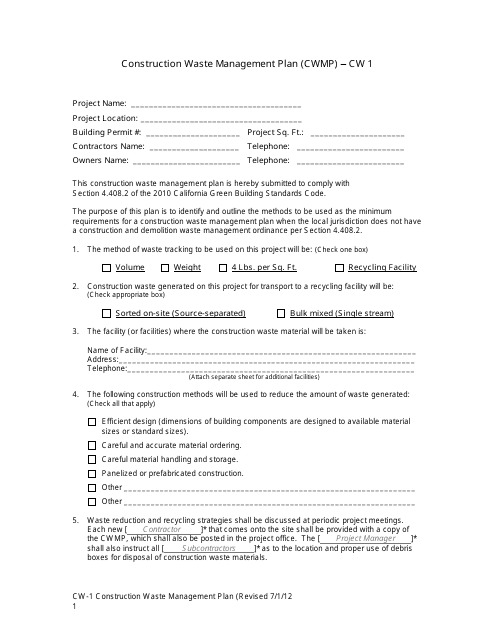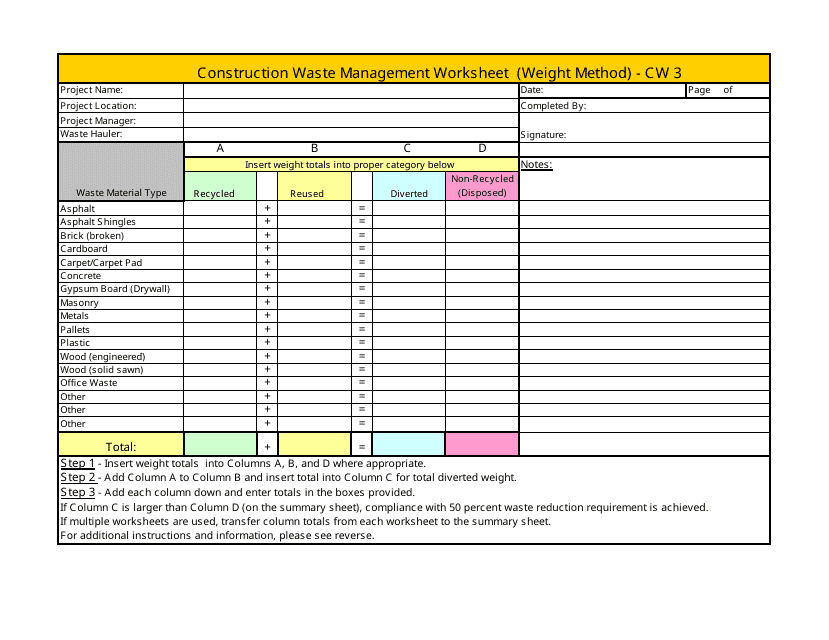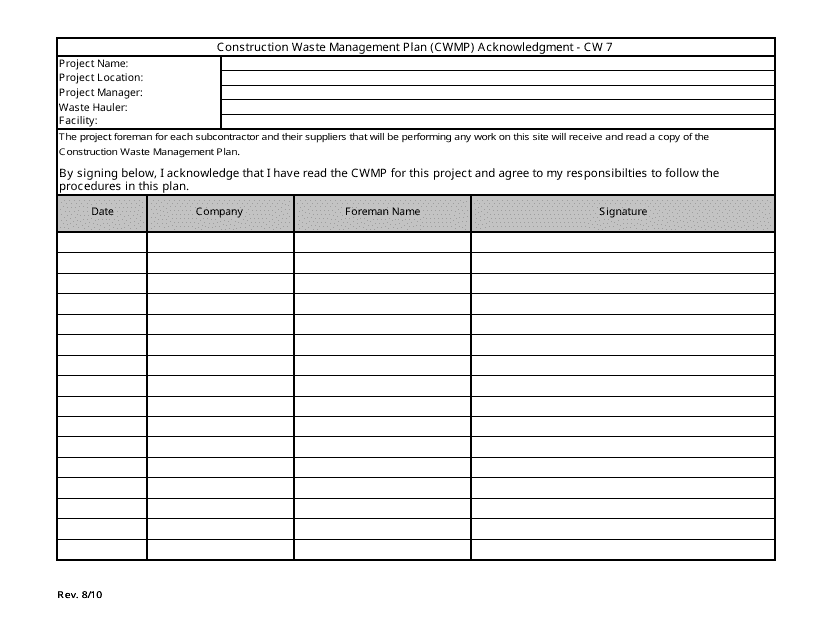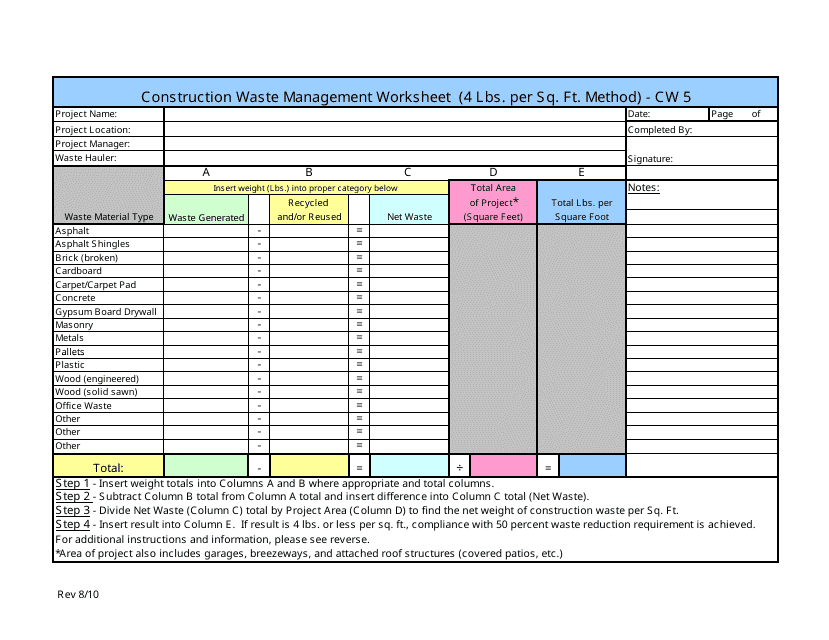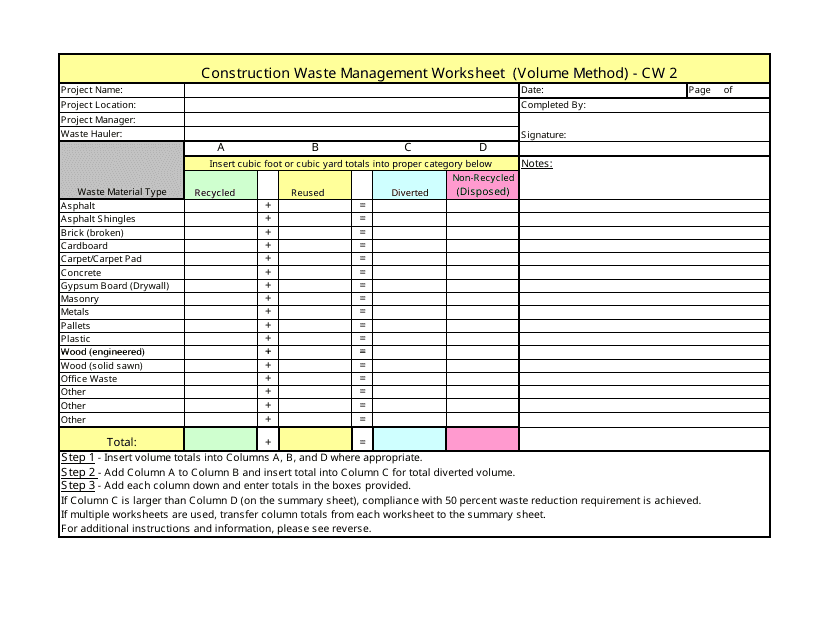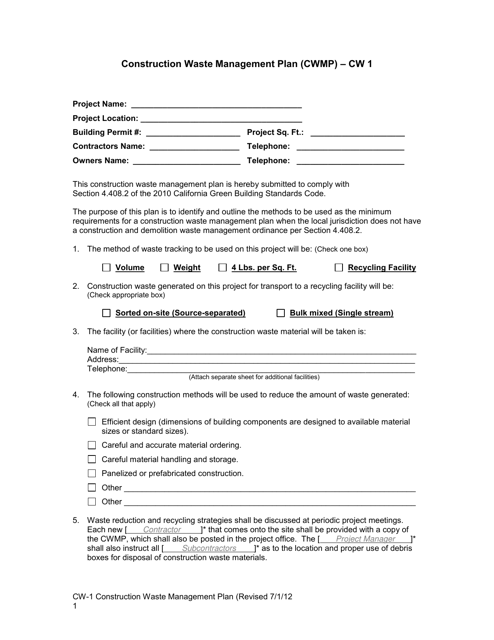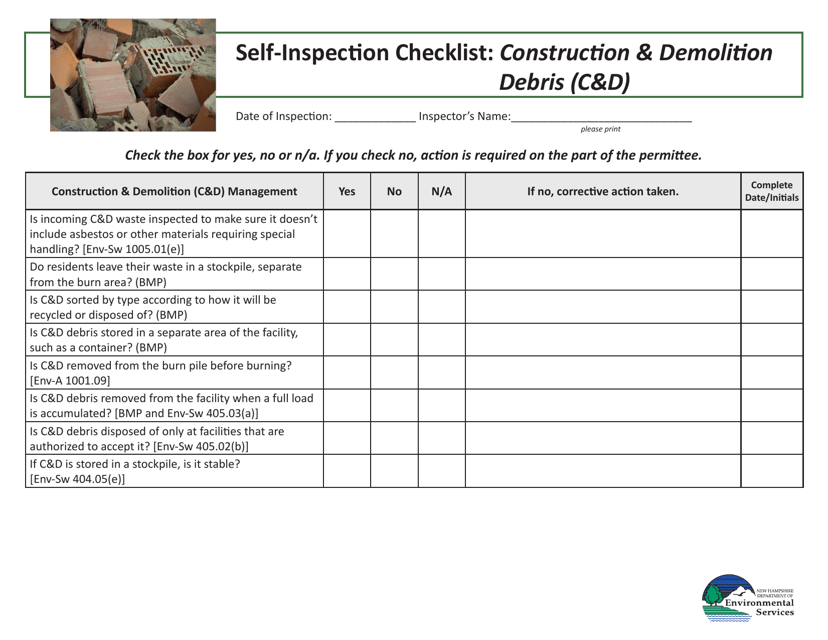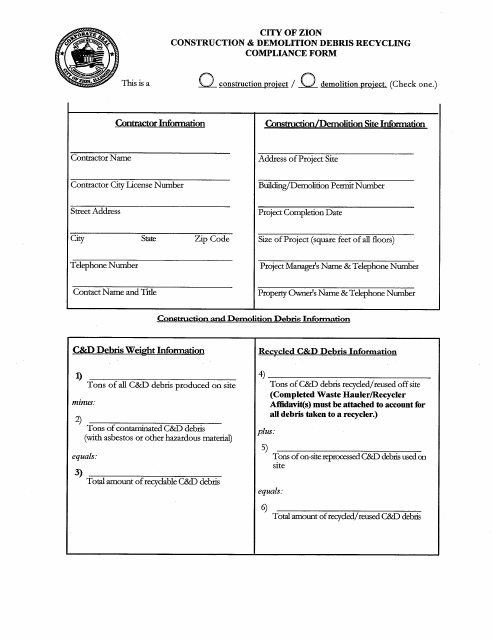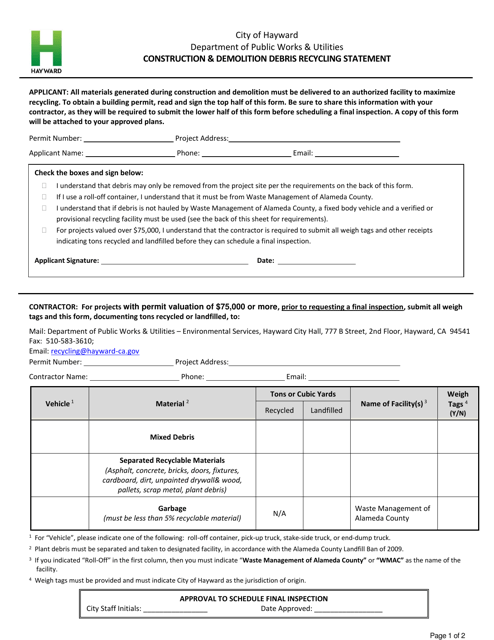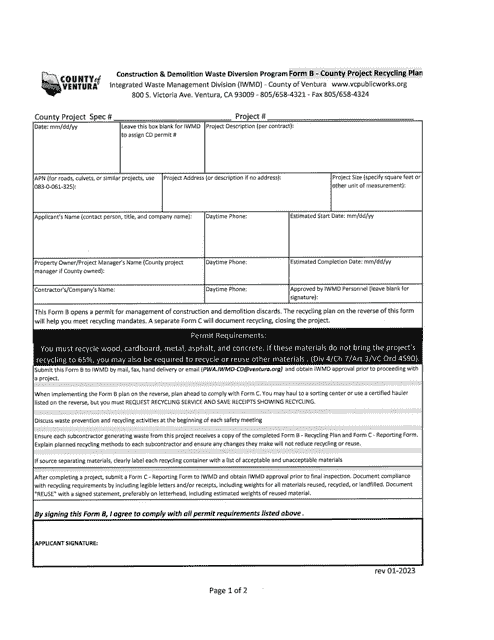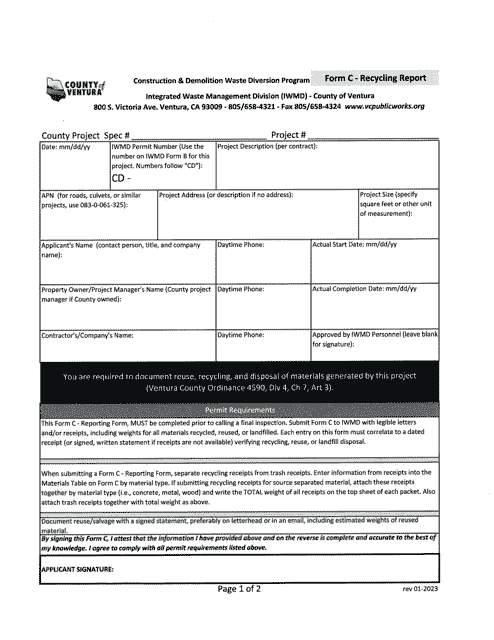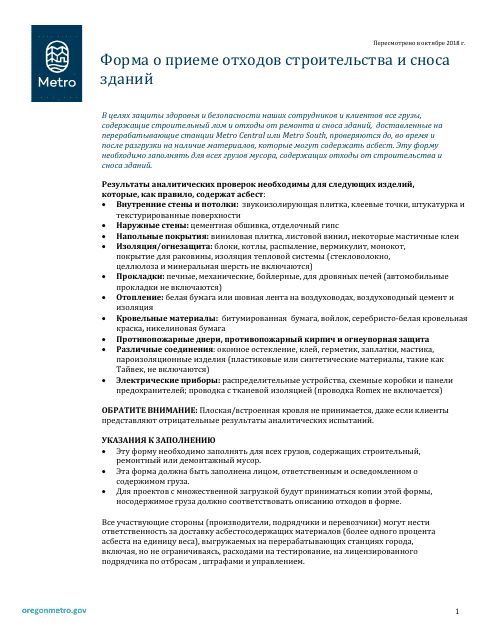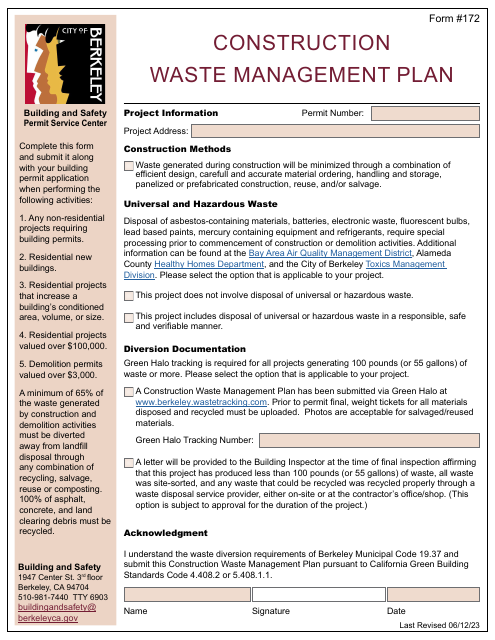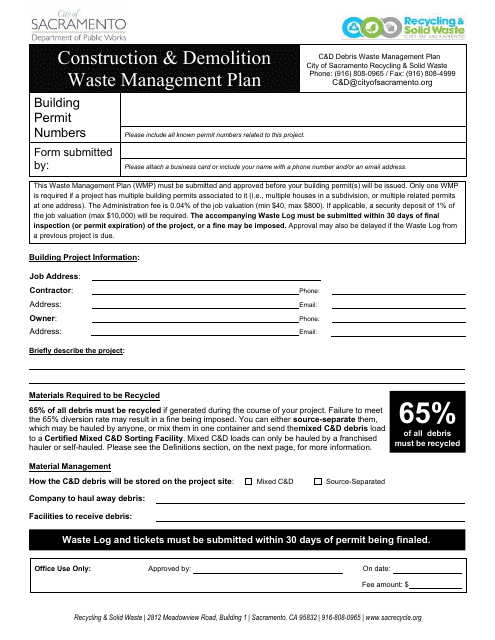Construction Waste Templates
Construction waste, also known as construction and demolition (C&D) waste, is a significant environmental concern that affects both the construction industry and the communities it operates in. Effective management of construction waste is crucial to promote sustainability, reduce landfill usage, and conserve natural resources.
At Templateroller.com, we understand the importance of proper construction waste management and offer a comprehensive range of services to help contractors, developers, and project owners in this aspect. Our expertise in handling construction waste allows us to assist you in mitigating the environmental impact of your projects and ensuring compliance with relevant regulations.
Our services encompass a wide range of documents and support materials designed to facilitate efficient construction waste management. For example, our Construction Waste Management Plan (CWMP) templates, such as the Form CW7 Construction Waste Management Plan (Cwmp) Acknowledgment in California, provide a structured approach for identifying, handling, and disposing of construction waste. Similarly, our Form CW5 Construction Waste Management Worksheet (4 Lbs. Per Sq. Ft. Method) in California helps contractors calculate and report their waste generation in a systematic manner.
In addition to these forms, we offer valuable resources like self-inspection checklists, such as the Construction & Demolition Debris (C&D) Self-inspection Checklist in New Hampshire. This checklist enables contractors to assess their waste disposal practices, identify opportunities for improvement, and implement best practices to minimize waste.
To further promote sustainability, we provide forms like the Form C Recycling Report - Construction & Demolition Waste Diversion Program in the County of Ventura, California. This report aids contractors in documenting and reporting their efforts in diverting construction waste from landfills, encouraging the recycling and reuse of materials whenever possible.
Furthermore, our Construction and Demolition Waste Acceptance Form in Oregon (Russian) ensures that waste generated on construction sites is properly managed and disposed of, minimizing the impact on the environment and local communities.
By leveraging our expertise and utilizing these documents, you can streamline your construction waste management processes, promote sustainable practices, and demonstrate your commitment to environmental stewardship. Partner with us to achieve your construction waste management goals and contribute to a greener future.
Documents:
15
This document is used for submitting a Construction Waste Management Plan (CWMP) in California. The CWMP helps to ensure that construction waste is properly managed and disposed of in an environmentally-friendly manner.
This form is used for tracking and managing construction waste in California using the weight method.
This form is used for acknowledging the Construction Waste Management Plan (CWMP) in California.
This Form is used for calculating construction waste management using the 4 lbs. per sq. ft. method in California.
This form is used for calculating and tracking construction waste management using the volume method in California.
This Form is used for creating a Construction Waste Management Plan (CWMP) in California. The CWMP helps contractors and construction project owners manage and reduce waste generated during construction projects.
This document is a self-inspection checklist for construction and demolition debris in New Hampshire. It provides guidelines and criteria for evaluating compliance with waste management regulations. Use this checklist to ensure proper handling and disposal of C&D debris.
This Form is used for ensuring compliance with construction and demolition debris recycling regulations in the City of Zion, Illinois. This document is required for construction projects to promote recycling and proper disposal of waste materials.
This document is a statement from the City of Hayward, California regarding the recycling of construction and demolition debris. It provides information and guidelines for recycling these materials in the city.
This document is used for the acceptance of construction and demolition waste in Oregon.

